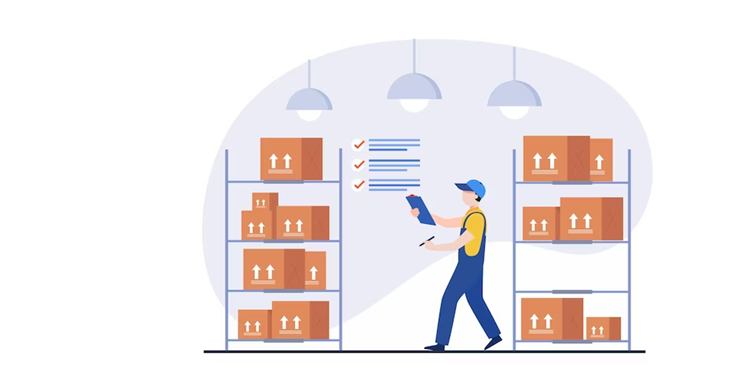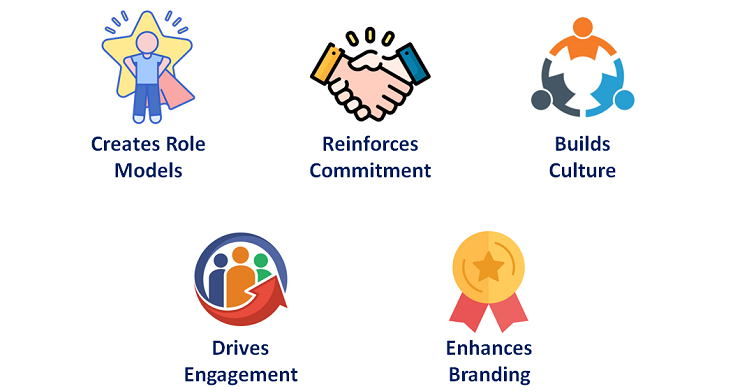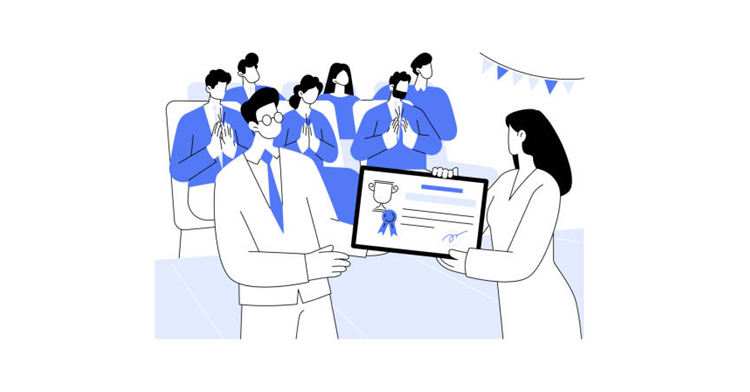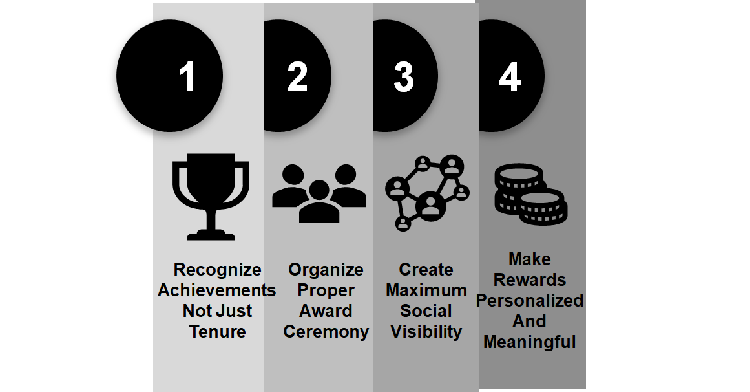1. Long Service Awards have become increasingly important in today’s competitive job market to recognize and reward employees’ loyalty, dedication, and contributions over time.
2. These awards go beyond just acknowledging tenure; they celebrate long-serving employees’ significant impact on the organization.
3. The benefits include creating role models, reinforcing commitment, enhancing organizational culture, and boosting employee engagement.
4. Best practices for these awards involve recognizing achievements, organizing formal award ceremonies, ensuring social visibility, and making the rewards personalized and meaningful.
Finding and retaining high-performing employees for a long time is challenging in this highly competitive job market. Hence, rewarding and recognizing tenured employees through long service awards to acknowledge their contribution has become critical for organizations.

Most organizations today have invested in employee rewards and recognition to boost the motivation of their workforce.
However, such programs often focus on recognizing employees only for their most recent achievements and contributions.

An increasing number of organizations also acknowledge and appreciate the loyalty and dedication of employees who have contributed their best for years.
Known as long service awards or simply service awards, these are meant to recognize the loyalty, dedication, and commitment of employees, who continue to work with the organization for a significant period of time, generally five years or more.

In today’s work environment, employee loyalty is becoming quite rare.
Therefore, organizations fully understand that today’s employees frequently switch jobs for better and faster career growth.
Also, most organizations have strict performance management processes, which allow them to ask poor performers to leave each year.

Hence, an employee who spends at least five years with the organization would have demonstrated loyalty towards the organization and good performance.
Such long-serving employees are highly trustworthy and critical to any organization’s workforce.
In fact, organizations have begun to value such long-serving employees even more in recent times as they help in creating a sense of stability in the otherwise constantly changing workforce.

There are many reasons why organizations should recognize tenured employees:
The tradition of long service awards goes back to possibly a century ago.
A few decades back, it was common for employees to spend their entire careers in the same organization.
Back then, the long service award was about celebrating the completion of a milestone, a certain number of years in the organization.

Recently, the concept of long service awards has undergone a significant change.
It is not just about recognizing the years the employee has spent in the organization, but for their contribution during that period.
Hence, long service awards have acquired new significance in today’s workplace.

These service awards allow organizations to express gratitude to employees who have stayed with them through multiple business cycles.
Hence, it is a way for them to thank such employees for the time and effort they have invested in the organization.
Offering long service awards to tenured employees is a great way for organizations looking to build a dedicated workforce.
These awards can prove beneficial for organizations in the following ways:
1. Creates Role Models
2. Reinforces Employee Commitment
3. Develops Organizational Culture
4. Drives Employee Engagement
5. Enhances Employer Branding


Acknowledging and appreciating the loyalty and accomplishments of tenured employees sends out a positive message to the relatively younger members of the workforce.
It assures them that their efforts and contributions will be acknowledged and appreciated even after many years with the organization.
Therefore, it encourages them to stay longer and perform better, inspired by their seniors.

Employees who are awarded with long service awards feel valued for their work and contribution towards the success of their organization.
It reinforces their decision to stay with the organization for many years, possibly sacrificing opportunities elsewhere.
It increases their level of commitment to the organization and motivates them further.

Offering long service awards helps in boosting the happiness and satisfaction levels of tenured employees.
It also counters growing cynicism or negativity among older employees, who might feel the organization is sidelining them.
It helps build a positive and cordial work environment where older and younger employees can collaborate.

Being rewarded for their years of service helps in strengthening the trust of employees in their organization.
It strengthens their sense of security and belonging to the organization and boosts their engagement levels within the workplace.
So, older employees feel motivated to share their skills and experiences with the younger workforce members through coaching and mentorship.

Offering service awards can go a long way in enhancing the employer brand value of the organization.
The public visibility of these awards can assure potential candidates that the organization values its employees even after many years of service.
It is an essential consideration for job aspirants, especially for top talent.

A global AI and digital technology company headquartered in the US uses the HiFives platform to manage its entire employee rewards and recognition program globally.
Employees receive automated service awards through the platform on their work anniversaries. They receive these notifications over email, which are also copied to their reporting managers. These notifications are also posted on the company’s Microsoft Teams channel through an integration with HiFives, where coworkers can see and congratulate them by liking and commenting on the posts.
These service awards also include personalized e-certificates that employees receive via email or download from the platform. They can also share these e-certificates on their LinkedIn profiles directly from the platform.

Employees also receive reward points as part of these service awards. The number of points is calibrated based on the years they have completed in the organization. They can redeem these points for e-gift cards of their choice. They can select any brand of e-gift card depending on their location.

Organizations must recognize and reward long service appropriately to drive a sense of loyalty among the workforce.
Given the new-found importance of long-service awards, organizations need to figure out the best ways to make them effective.
So, here are a few of the best practices that organizations can adopt for setting up long-service rewards for their long-serving employees:
1. Recognize Achievements, Not Just Tenure
2. Organize A Proper Award Ceremony
3. Create Maximum Social Visibility
4. Make The Rewards Personalized And Meaningful


It is essential to acknowledge the contribution of their long-term employees towards the organization over their long tenure.
Hence, a long service award should ideally focus on appreciating the achievements of these employees, and not just the time they have invested with the organization.
Recognizing such contributions to the organization is critical. It can enhance the motivation and commitment levels of the award recipients.
Such presenters must mention the stories of the employees’ achievements during the presentation and announcements of these awards in different forums and platforms across the organization.

Presenting the award at large employee gatherings, such as an annual day event, awards ceremony, or employee town hall, is crucial to adding value to it.
Possibly, the best way would be in the formal awards ceremony, offline or virtual, attended by a major segment of the workforce and the senior management. Inviting the family of the award recipients can make the occasion more memorable and further the emotional connection.
During the ceremony, the audience should know the highlights of the employee’s contribution to the organization.
The award could be announced or handed over by a member of the senior management team, preferably someone who has known the recipient for a long time.

Public acknowledgment of their long-serving employees helps organizations send a strong, positive message.
Using internal platforms such as the intranet, email broadcast, Teams/ Slack, etc., to announce long service awards can help create social visibility.These announcements should also be shared on social media such as Facebook and LinkedIn.
This creates significant social gratification for the award recipients and helps enhance the organization’s brand value among prospective employees.
They perceive the organization as an employer of choice where employees are willing to invest a significant part of their careers.

Organizations must make the entire experience memorable and create an emotional connection with the employee.
Certificates and mementos should be part of the award, which have great emotional value.
Apart from the emotional value of the reward, the employees should receive some financial benefits such as cash bonuses, gift cards, or a choice of merchandise like electronics or appliances.
Organizations can also consider a sponsored higher education/ training program, a fully paid family vacation, or a scholarship for children.
Read the Comprehensive Guide to Different Types of Employee Awards
Long Service Awards in today’s workplace have assumed renewed significance. It is no longer about just rewarding the employee for their time spent in the organization. It is more about acknowledging the contribution of the employee over the years spent with the organization.
Long Service Awards can be vital in boosting employee motivation, retention, and workplace culture.
Hence, organizations should consider including them as an integral part of employee recognition programs.

Lead author: Sagar Chaudhuri, the Co-Founder and CEO of HiFives. He is an HR Tech Evangelist with over 25 years of corporate and entrepreneurship experience. In the past, Sagar has worked in leadership roles with companies such as Genpact, Infosys, and ICICI Bank. He has an engineering degree from IIT Kharagpur and an MBA from IIM Lucknow. Connect on LinkedIn
To stay updated on the latest HiFives blogs, follow us on Twitter (@MyHiFives)